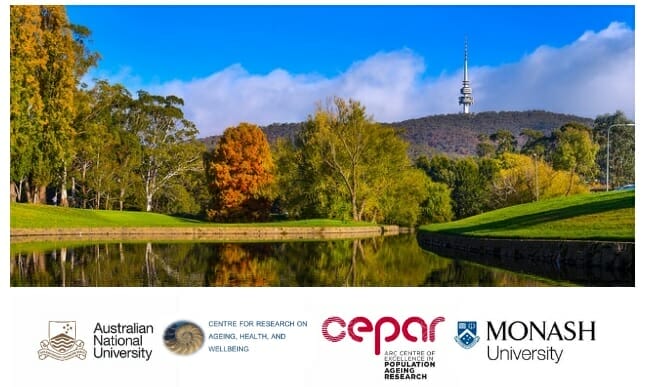Goodwin proudly sponsored the National Conference of Emerging Researchers in Ageing, held on 31 October at the Australian National University (ANU) – with a special session on “Pathways through Dementia” created in light of current research hosted at Goodwin sites.
The theme of this year’s conference, ‘Pathways to ageing well’ raised questions about what it means to “age well”, what limits our efforts to do so, and what services are needed to support “ageing well”.
A key event in the Australian ageing research calendar, the conference brought together early-career scholars from across the country. Sessions explored a range of aspects of ageing from physical function, health and wellbeing, services planning, psycho-social aspects, social relationships, and diet and nutrition.
Conference convenor Professor Kaarin Anstey said, “Research into ageing well aims to find the best approaches for individuals and groups, and to advocate for these among policy-makers.”
“Pathways to ageing well recognizes that all older adults have a right to age well, regardless of health status, disability, cognitive impairment, gender, sexual orientation, race and religion.”
Goodwin’s special session Pathways through Dementia outlined five current research projects.
One project explores what it means to “age well” for people living with dementia.
This project looks at how finding meaning in their lives helps people with dementia to manage the feeling of losing control. With little ability to predict the trajectory of their dementia journey, some people found it difficult to establish future needs and goals. Help came from “seeking answers, giving back and staying connected to their pre-diagnosis life for as long as possible,” the researchers said.
“Health care providers need to help establish pathways for people with dementia by empowering them with the knowledge they require to plan for the future and stay connected to their pre-diagnosis life for as long as possible.”
A Monash University study discussed in the session looked at ways to quickly identify social skills impairments, and how providers can “take into account more completely the full social impact of dementia to improve rest-of-life care and support those impacted to engage in life and live well.”
Another study looked at how researchers and providers can conceptualise Mild Cognitive Impairment (MCI) – a condition in which there are cognitive deficits which can be detected, but that are not severe enough for a diagnosis of probable dementia.
Another study mapped population ageing statistics with dementia cases, to analyse locations in need of more health/aged care infrastructure.
The World Health Organisation has identified dementia as one of the largest challenges facing society. Currently there are more than 35 million people living with dementia world -wide, a figure which is set to double by 2030 and triple by 2050.
Goodwin Aged Care Specialist Nurse Practitioner Tamra MacLeod said, in the opening plenary, “As a leading provider of aged care with a commitment to excellence and research, the Goodwin team looks forward to hearing from you, who are some of the brightest minds in your respective fields. Enjoy the program, be inspired, support your fellow researchers and think about how you would like to age and the way your research can help us all to age well!”
